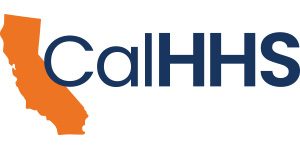
CHHS hosted the third-annual Data Expo on August 1, 2017 at the Child Welfare Digital Services office in Sacramento. The event brought together users of the CHHS Data Playbook from across the Agency and focused on concrete examples of departmental implementation of the Data Playbook, with each segment of the Expo dedicated to one of the five Plays in the Playbook. See the full event video.
Play 1: Define Goals & Objectives and Play 4: Evaluate Outcomes & Impacts highlighted a number of diverse departmental projects. These included Child Welfare Digital Services, a Health Plan Dashboard from the Department of Managed Health Care, a Health Information Exchange from the Emergency Medical Services Authority, CalFresh Geomapping from the Department of Social Services, and a data-driven analysis of the Department of State Hospitals’ Incompetent to Stand Trial Waitlist. Check out the full list of projects showcased at the Expo.
“The customer needs to be at the center of the problem you are trying to solve and needs to be part of the solutioning … Don’t bring an analogue in for a customer when you can bring the customer in directly … Nothing is better than talking with the customer directly.”
Peter Kelly, Chief Deputy Director, Office of Systems Integration
The Expo showcased five Innovation Use Case Teams from the Department of Social Services, the Office of Statewide Health Planning and Development, California Department of Public Health, and Department of Community Services and Development. These teams are a part of the recently-established Agency Innovation Office, and provided examples of Play 2: Assess Tools & Capabilities. This Play focuses on how departments can utilize available resources to leverage data and analytics, with the ultimate goal of creating innovative solutions that address programmatic priorities.
“Our staff are very eager to see real, meaningful change … The staff that we tapped [for the Innovation Use Case Team] saw this as a meaningful way to really effectuate change … I think most people now see this as part of their jobs.”
CJ Howard, Chief of Policy and Planning, Center for Health Care Quality, Department of Public Health
Play 3: Implement Plan & Strategy provided a training session on two Data Playbook tools— the CHHS Data Sharing Agreement and the CHHS Data De-Identification Guidelines. Both tools aim to improve the ability to share data, while maintaining privacy and confidentiality. Alongside hearing from the two architects of the Data Sharing Agreement and Data De-Identification Guidelines—Jennifer Schwartz, Privacy Officer at the Department of State Hospitals, and Linette Scott, Chief Medical Officer at the Department of Health Care Services—attendees saw presentations from departments that have used these resources to help meet their program objectives.
“The [Data De-Identification Guidelines] are written to be a tool to help you think about what your choices might be in terms of how you can display the maximum amount of data while still protecting it … Is there a way we can do it that hits the goal of getting the data out, but still provides the protection for the small numbers and for the clients we are responsible for taking care of.”
Dr. Linette Scott, Chief Medical Information Officer, Department of Health Care Services
The 2017 Data Expo concluded with a call to action with Play 5: Share Progress & Results. How can we better share information, projects, and lessons learned across the Agency as we delve deeper into data-driven work? Attendees first heard from Julie Nagasako with the Let’s Get Healthy California Team about their intentional efforts at sharing progress. Attendees followed up with a tabletop exercise to provide their own thoughts on how to better share progress and results.
“We’re hoping Let’s Get Healthy can continue to serve as one of those vehicles to help us see the connections across our work and also to be a venue for where we can share about the efforts that are underway to make improvements. When we map our efforts to common goals then there’s the opportunity to identify focus areas for collaboration.”
Julie Nagasako, Acting Director, Fusion Center, Department of Public Health
This year’s event was a culmination of the work conducted over the past three years. CHHS has moved from hypothetical scenarios of what could be done with data, to this year showing what departments are actually doing with data. Attendees left the event inspired by the possibilities of what they themselves would be able to accomplish, and fired-up for more opportunities to network, collaborate, and share ideas across the Agency.

